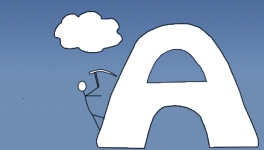Is the budget deficit responsible for high gas prices?
By Chris | October 19, 2007
Clara Jeffery, editor-in-chief at MotherJones, thinks so. In a post that received over 1300 diggs she notes:
“Thus, of the $59 increase in the cost of a barrel of oil to a U.S. consumer, more than $30 is due to the depreciation of the U.S. Dollar and the fiscal and trade policies that have contributed to it. Not Middle East tensions, not China’s increased appetite, etc. “
I agree that a falling dollar is going to make crude oil more expensive for U.S. consumers. Even though oil prices are denominated in dollars, OPEC is a cartel that maximizes profit by setting a uniform price. As the dollar falls relative to most other world currencies, world demand for oil will increase and OPEC’s profit maximizing price will rise.
Where Ms. Jeffery goes wrong is when she claims that, “…a big portion of it [high gas prices] can be attributed to a growing [budget] deficit.” This is contrary to basic exchange rate economics. A growing budget deficit puts upward pressure on interest rates which should make the dollar rise.
It’s just hypocritical to be hysterical about our unsustainable trade deficit and then blame the Bush administration when exchange rates adjust. Gas prices have been rising for a number of reasons, but a growing budget deficit isn’t one of them.
Topics: Exchange Rates | 16 Comments »
Why end the comments?
By Chris | October 18, 2007
Greg Mankiw removed the comments section from his blog. He explained why:
“I just don’t have the time to police comments and enforce good behavior, especially since some posts were generating more than 100 comments. And I don’t want to host a party in which a small vitriolic minority consistently tries to ruin the event for everyone else.”
As a regular reader of the blog I was very disappointed. Dr. Mankiw mentioned the popularity of the blog earlier in his explanation and it seems that he is concerned that the comments section somehow reflected on himself. While this may be true to a certain extent (you wouldn’t want obscene material in the section) people are well aware that comments are open to the public and therefore bound to contain ideas and comments on the fringe of mainstream thought and etiquette. Is no discourse better than good discourse marginalized by a few posters? Hardly. Nevertheless, Dr. Mankiw bears the full cost of bad behavior on his reputation, while readers are the primary beneficiaries of this outlet for discussion. This is textbook market failure, ironically, plaguing an economist’s blog. My recommendation: place ads only on the comment pages and use the revenue to hire someone else to police the page. Of course, Dr. Mankiw can do what he wishes with his own blog. It just seems like there are better alternatives to going completely comment-free.
Topics: Blogosphere | No Comments »
Next Entries »


